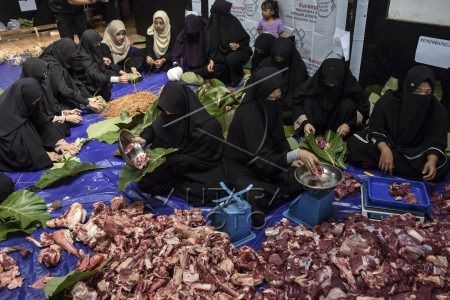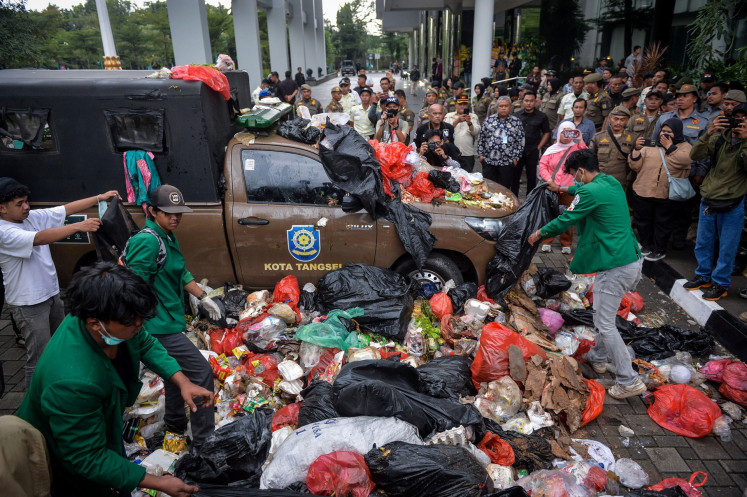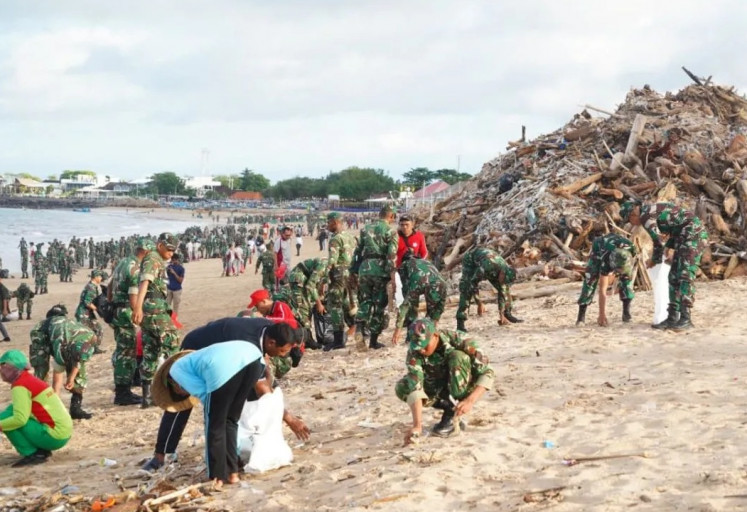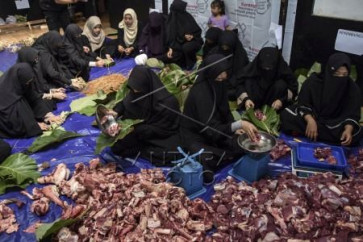Popular Reads
Top Results
Can't find what you're looking for?
View all search resultsPopular Reads
Top Results
Can't find what you're looking for?
View all search resultsNational Education Day: The state’s commitment to ‘pesantren’
When designed and implemented appropriately, state support to pesantren can be leveraged to promote community well-being and resilience.
Change text size
Gift Premium Articles
to Anyone
I
n celebrating National Education Day today, we should not forget the crucial role of pesantren (Islamic boarding schools). As educational institutions that develop their own curriculum based on their unique characteristics, pesantren raise generations that are intellectually capable and spiritually and morally grounded.
Pesantren in general have made significant historical and cultural contributions to the nation's education and will continue to do so in the face of present and future challenges. Pesantren are not merely institutions for religious instruction; they are dynamic social entities deeply embedded within local communities.
Amid the growing complexity of contemporary challenges—ranging from socioeconomic crises to cultural disruptions—pesantren continue to play a vital role as moral anchors and agents of community empowerment. Their function extends well beyond formal education, as they actively engage in educating and supporting the broader society.
Data from the Religious Affairs Ministry shows there are more than 31,000 pesantren across Indonesia, the world’s largest Muslim majority country. Financial support from the state budget flows each year in various forms, such as assistance for digitalization, infrastructure support, forums support, partnerships, educational operations, operational assistance and infrastructure revitalization programs, teacher incentives and, more recently, the establishment of the Pesantren Endowment Fund.
This reflects that pesantren are not only an essential part of the national education system but also receive serious attention from the state in efforts to enhance educational quality, develop institutional capacity and empower students to actively contribute to society and national development.
Across many regions, pesantren offer vocational training, manage cooperatives and foster micro-enterprises that involve not only students, but also members of the surrounding community. This illustrates the inclusive and participatory nature of pesantren, which positions them as integral actors in local development.
The state has indeed provided significant support to pesantren through various forms of assistance. However, an important question remains: to what extent have these initiatives generated a measurable and meaningful impact?



















